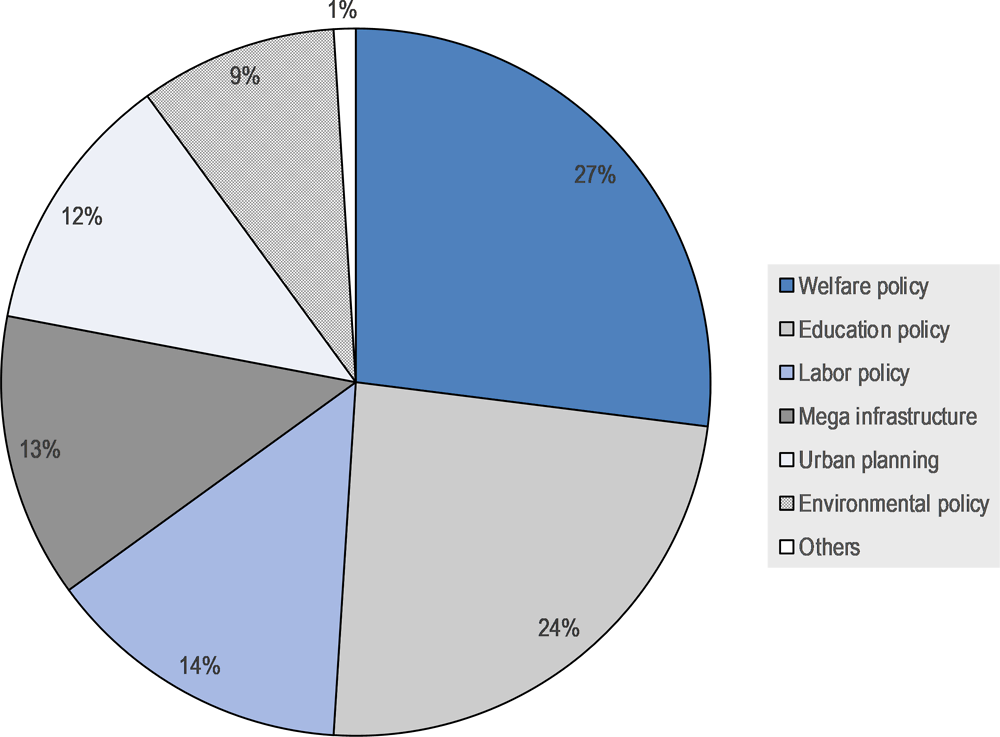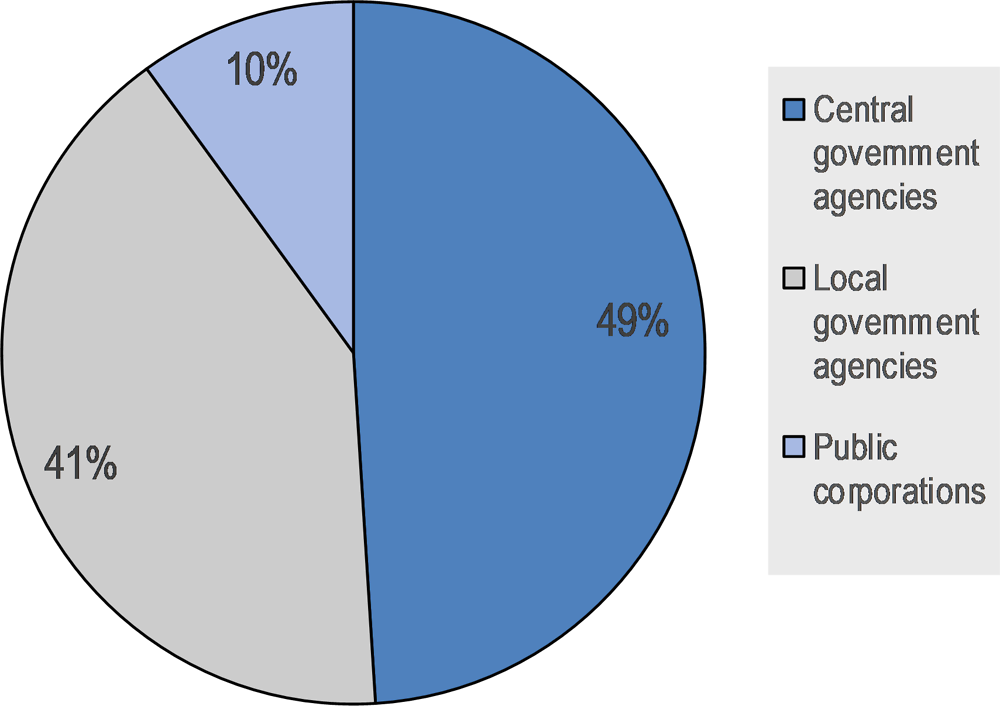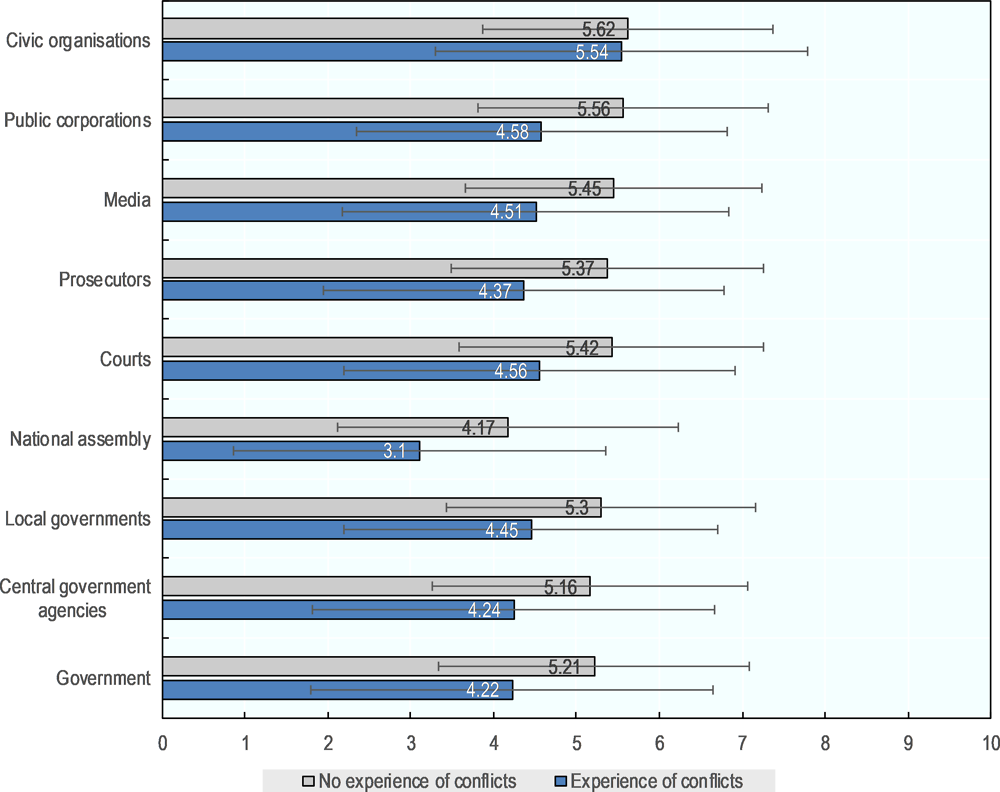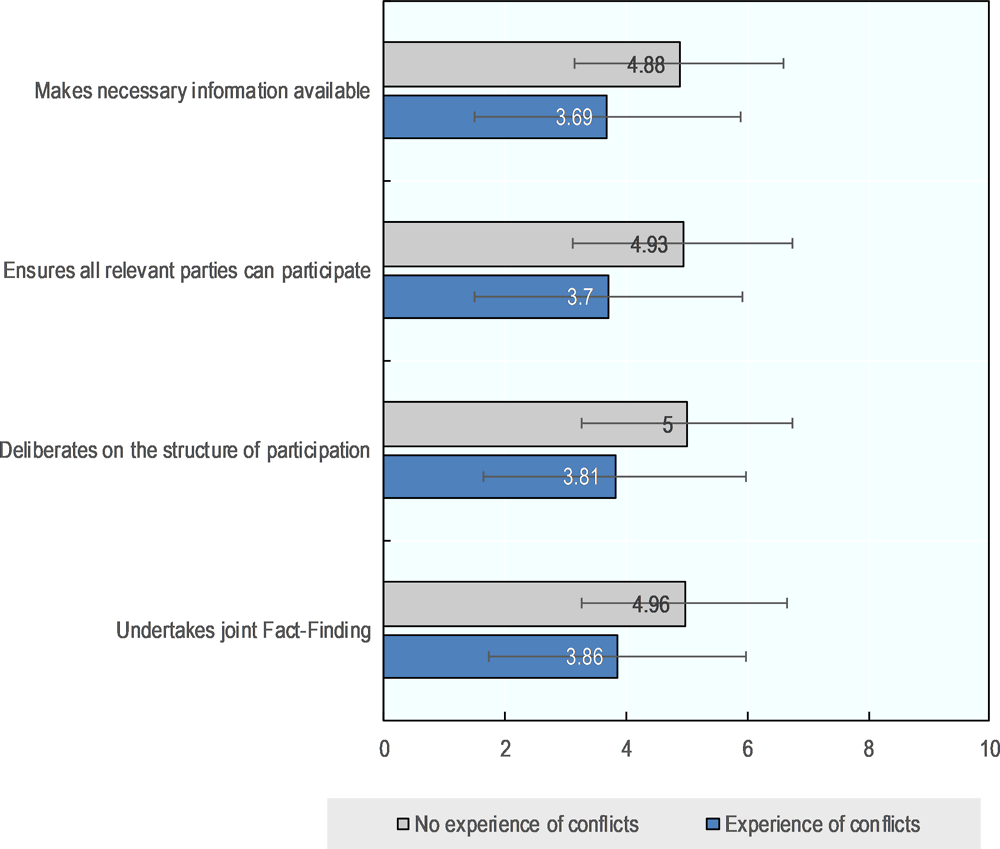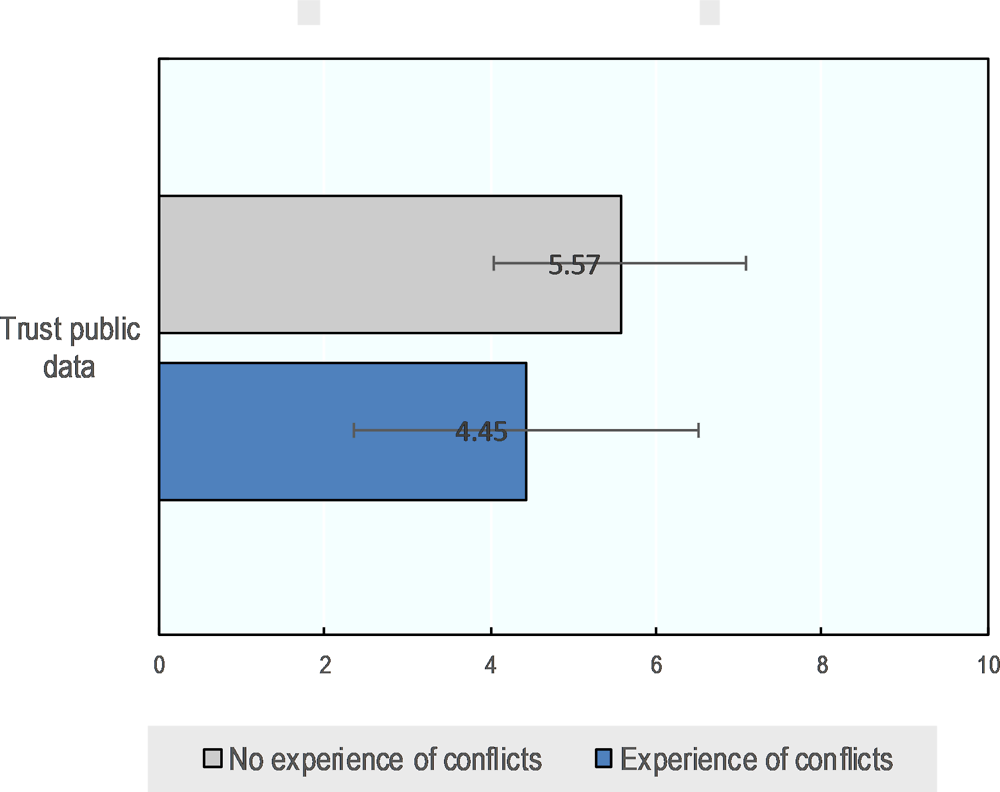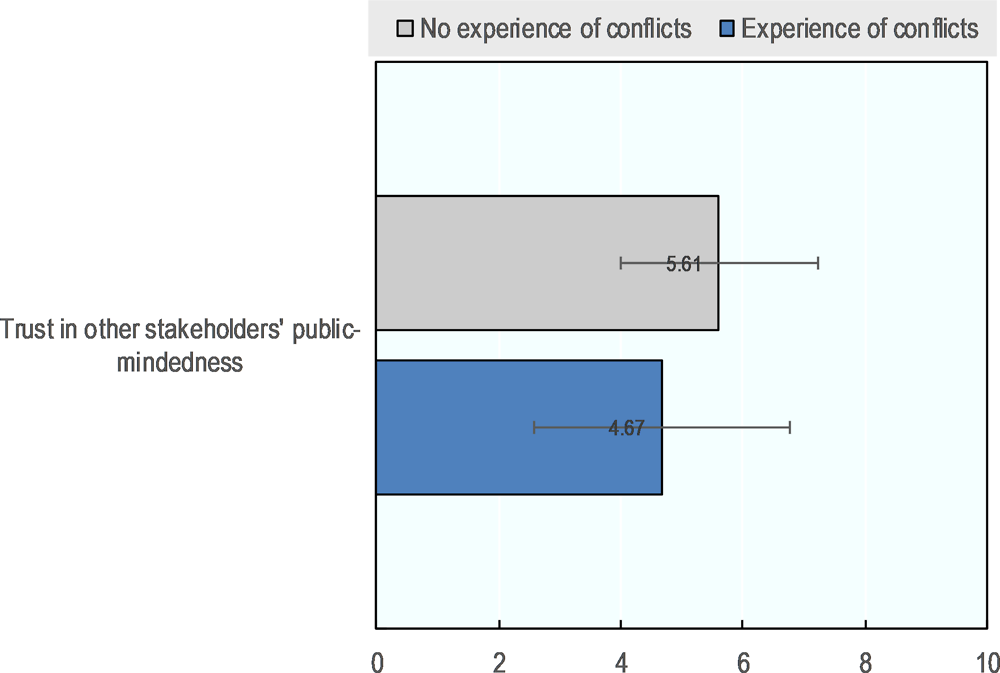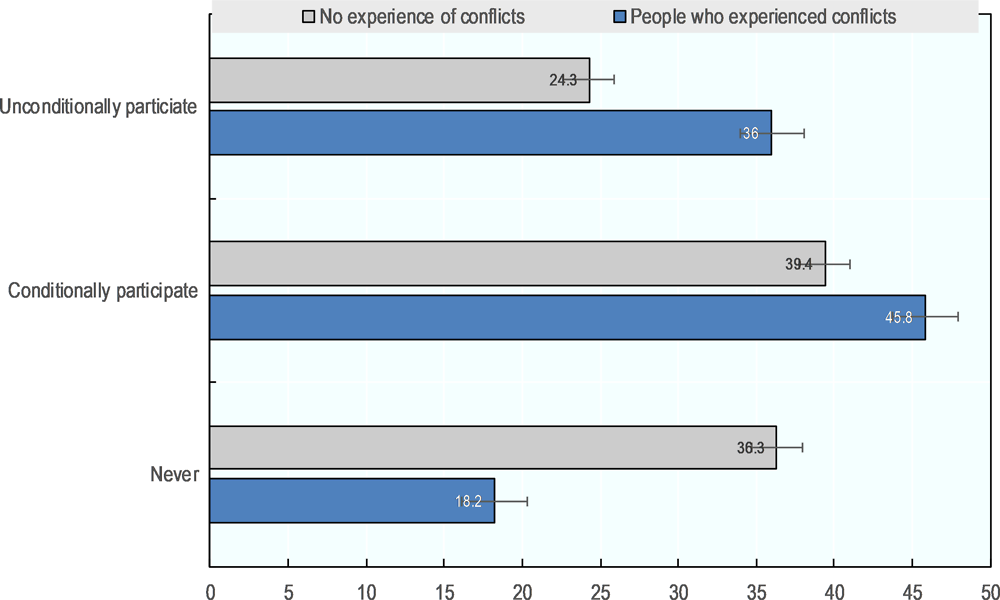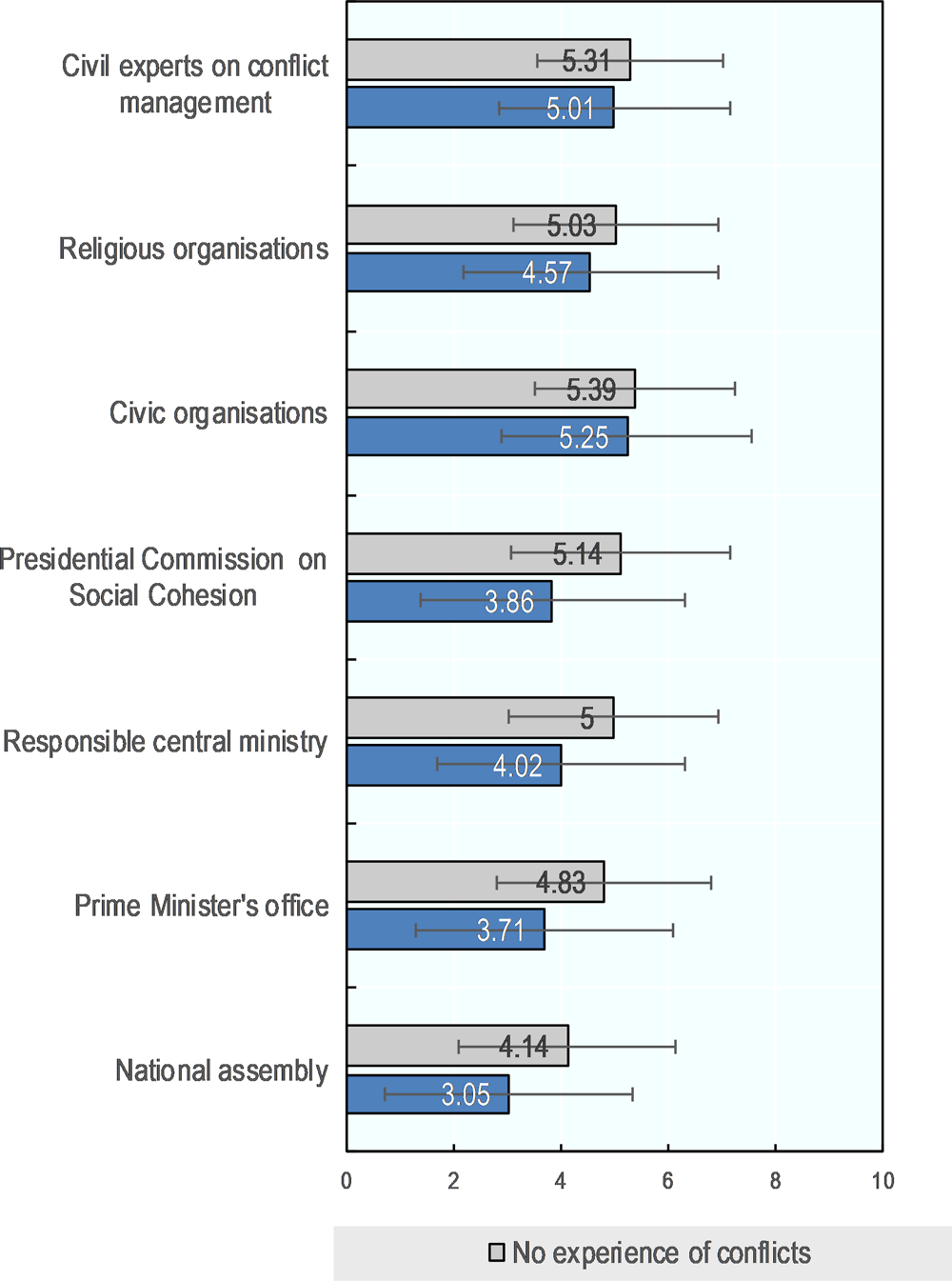Ackerman, B., and J. S. Fishkin (2014), Deliberation Day, Yale University Press, New Haven.
Ansell, C. and A. Gash (2008), “Collaborative governance in theory and practice,” Journal of Public Administration Research and Theory, Vol. 18/4, Oxford University Press, Oxford, pp. 543-571, https://doi.org/10.1093/jopart/mum032.
Beierle, T. C. and D. Konisky (2001), “What are we gaining from stakeholder involvement? Observations from environmental planning in the Great Lakes,” Environment and Planning C: Politics and Space, Vol. 19, Sage Publications, Thousand Oaks, CA, pp. 515-527, https://doi.org/10.1068/c5s.
Chung, Y. H. and S. J. Ko (2015), “Social conflict index and economic growth: Evidence from a cross-section of 7 countries,” Public Health and Welfare Forum, March 2015, pp. 44-55. Public Health and Welfare Forum, March 2015, pp. 44-55.
Fukuyama, F. (1995), Trust: The Social Virtues and the Creation of Prosperity, Free Press Paperbacks, New York.
Glasbergen, P. and P. P. J. Driessen (2005), “Interactive planning of infrastructure: The changing role of Dutch project management,” Environment and Planning C: Politics and Space, Vol. 23/2, Sage Publications, Thousand Oaks, CA, pp. 263-277, https://doi.org/10.1068/c0441.
Imperial, M. (2005), “Using collaboration as a governance strategy: Lessons from six watershed management programs,” Administration and Society, Vol. 37/3, Sage Publications, Thousand Oaks, CA, pp. 281-320, https://doi.org/10.1177/0095399705276111.
Kim, D. Y. (2014), “Transformation of countervailing power in collaborative governance: A case study of the Shi-Hwa Sustainable Development Committee,” Korean Journal of Policy Studies, Vol. 29/3, GSPA, Seoul, pp. 53-77.
Kim, Y. W. and M. S. Cha (2001), “Public dispute resolution in Korea”, KRIHS Special Report, No. 1, KRIHS, Sejong City, Korea.
Lee, J. H. et al. (2014), Analysis of Public Dispute Management Cases in Korea and Research on Public Dispute Management Institutions in Other Countries (in Korean), National Assembly Budget Office, Seoul.
Murdock, B., W. Carol and K. Sexton (2005), “Stakeholder participation in voluntary environmental agreements: Analysis of 10 project SL case studies,” Science, Technology and Human Values, Vol. 30/2, Sage Publications, Thousand Oaks, CA, pp. 223-250, https://doi.org/10.1177/0162243904266104.
OECD (2017), Trust and Public Policy: How Better Governance Can Help Rebuild Public Trust, OECD Publishing, Paris, http://dx.doi.org/10.1787/9789264268920-en.
OECD (2015), Government at a Glance 2015, OECD Publishing, Paris, http://dx.doi.org/10.1787/22214399.
OECD (2010), Making Reform Happen: Lessons from OECD Countries, OECD Publishing, Paris, http://dx.doi.org/10.1787/9789264086296-en.
Ozawa, C. P. and L. Susskind (1985), “Mediating science-intensive policy disputes,” Journal of Policy Analysis and Management, Vol. 5/1, APPAM, Washington DC, pp. 23-39, https://doi.org/10.1002/pam.4050050102.
Park, M. H. (2010), “Development and application of a cross-national indicator for economic and social development” (in Korean), The Korean Economic Forum, Seoul, Vol. 2/4, pp.115-131.
Park, M. H. (2009), Conditions for Promoting Korean Economic and Social Development (II): Development and Application of Indicators for Economic and Social Development (in Korean), National Research Council for Economics, Humanities, and Social Sciences, Sejong City, Korea.
Ury, W., J. Brett and S. Goldberg (1988), Getting Disputes Resolved: Designing Systems to Cut the Costs of Conflict, Jossey-Bass Publishers, San Francisco.
Vangen, S. and C. Huxham (2003), “Nurturing collaborative relations: Building trust in interorganisational collaboration,” Journal of Applied Behavioral Science, Vol. 39/1, Sage Publications, Thousand Oaks, CA, pp. 5-31, https://doi.org/10.1177/0021886303039001001.
Wynne, B. (1992), “Uncertainty and environmental learning: Reconceiving science and policy in the preventive paradigm,” Global Environmental Change, Vol. 2/2, Elsevier, Amsterdam, pp. 111-127, https://doi.org/10.1016/0959-3780(92)90017-2.

